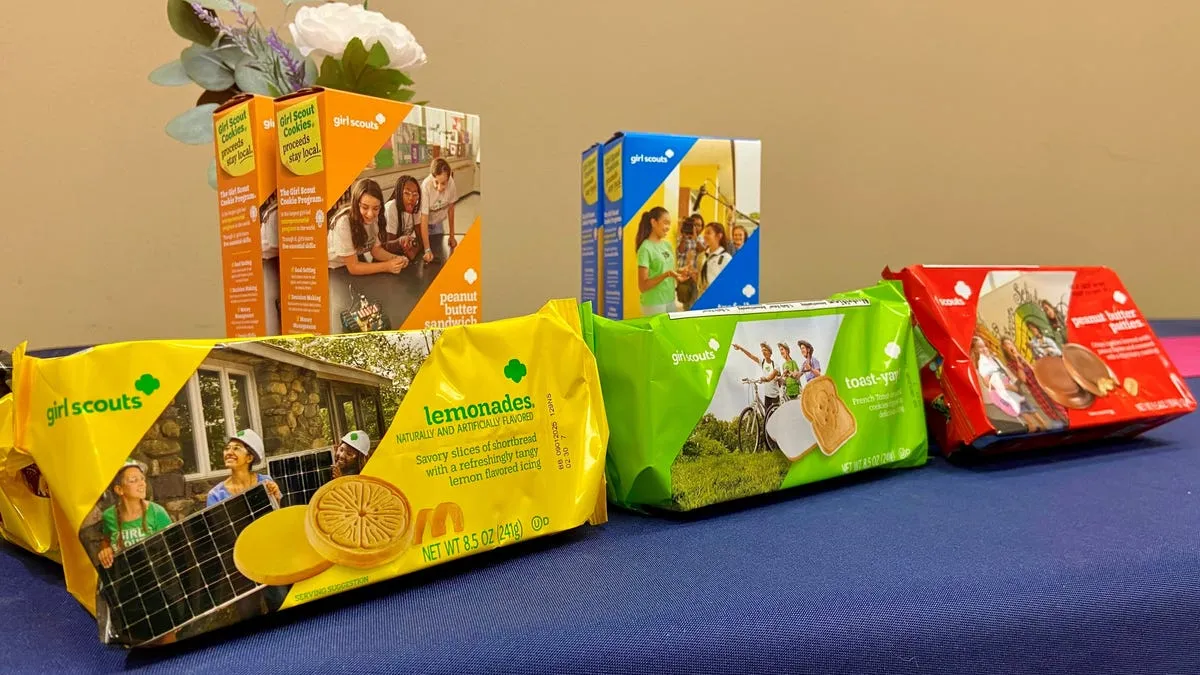
A New York woman has initiated a class-action lawsuit against the Girl Scouts of America, alleging that their iconic cookies contain harmful levels of heavy metals and pesticides. This lawsuit, filed in federal court by Amy Mayo on Monday, has sparked significant interest and debate regarding the safety of these popular treats.
The lawsuit asserts that both the Girl Scouts of America and cookie manufacturers, Ferrero U.S.A. and Interbake Foods (operating under the name ABC Bakers), are selling cookies containing hazardous levels of heavy metals and toxins. This legal action references a controversial study commissioned by Moms Across America and GMO Science, which claims that 100% of the cookies tested contained elements such as aluminum, arsenic, cadmium, lead, and mercury. Furthermore, the study reportedly found that 13 cookie samples tested positive for high levels of glyphosate, a common herbicide.
However, it is worth noting that this study has not been published in a peer-reviewed scientific journal and utilized a small sample size, which may not accurately reflect nationwide contamination levels. Moreover, the study compared the levels of heavy metals and glyphosate to water safety limits established by the Environmental Protection Agency (EPA), rather than the U.S. Food and Drug Administration (FDA) standards for food safety, making the comparison potentially misleading.
The claims gained traction due to a mention by popular podcaster Joe Rogan, which led to widespread discussions on platforms such as TikTok and other social media, amplifying the lawsuit's visibility and public concern.
This lawsuit echoes the study's findings, alleging that Girl Scout Cookies contain dangerous levels of heavy metals and pesticides. It accuses the organization of making misleading claims about the safety and quality of their cookies in marketing materials. According to the lawsuit, Mayo and other potential plaintiffs would have refrained from purchasing the cookies had they been aware of these alleged health risks. Consequently, the lawsuit claims that the defendants violated consumer protection laws and profited unjustly from the sale of these potentially contaminated cookies.
The lawsuit seeks $5 million in damages for U.S. consumers of the cookies and demands an injunction requiring the cookie sellers to update their packaging to disclose the presence of the substances in question.
The Girl Scouts have not yet responded directly to requests for comment but previously addressed these allegations in a blog post. They emphasized that the health and safety of both the Girl Scouts and their cookie customers is their top priority. In their statement, the organization reassured consumers that Girl Scout Cookies are safe to eat, adhering to food safety standards set by the FDA, EPA, and other regulatory bodies. The organization highlighted that trace amounts of heavy metals and glyphosate can naturally occur in many foods due to environmental exposure and do not pose a significant health risk.
The Girl Scouts also pointed out that trace amounts of glyphosate are found in a variety of food products, including fresh fruits, vegetables, and baked goods, as it is commonly utilized in modern agriculture in accordance with EPA and FDA guidelines. They asserted that small amounts of heavy metals can occur in the environment and food products due to exposure from air, water, and soil, clarifying that these metals are not intentionally added to their cookies.
In conclusion, the Girl Scouts of America maintain that they follow rigorous safety standards to ensure the integrity of their cookie recipes and the safety of their products, stating, "As a result, Girl Scout Cookies are safe to consume and are manufactured in accordance with all food safety regulations."